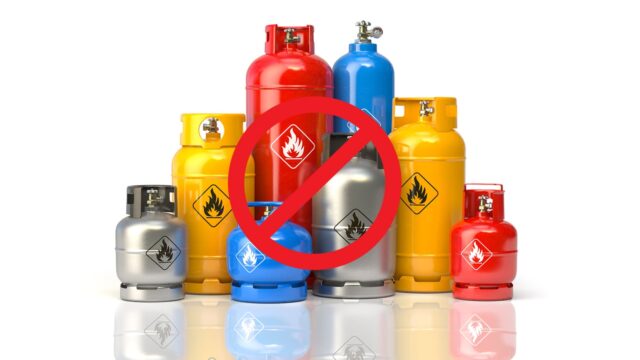As cooking gas prices go higher, people are looking for other alternatives
Kenyans are searching for cheaper alternatives for cooking to cut costs as they try to keep up with the dramatic rise in the cost of living.

As global prices of Liquefied Petroleum Gas continue to rise, the cost of buying cooking gas has become unbearable for Kenyans who are already paying higher bills. Cooking gas now costs more, and the reason for this, industry players say, is because of the surge in global LPG prices and a weak shilling against the dollar.
Locally, cooking gas prices have shot up by more than KSh500; a 13Kg cylinder which retailed at averagely KSh2600 costs KSh3100.
Now, Kenyans are searching for cheaper alternatives for cooking to cut costs as they try to keep up with the dramatic rise in the cost of living.
These are some of the alternatives:
Bioethanol fuel
Bioethanol is produced by the sugar fermentation process from plants such as rice straws, corn, sugarcane, wheat and other agricultural feedstocks. The sugar from these crops is used to produce ethanol which can be used as fuel.
Technology company, KOKO, is among the businesses in Kenya which provide clean ethanol cooking fuel from bundles of as little as KSh30 and KSh77.83 per liter.
Their two burner cookers use bioethanol which they have dubbed KOKO fuel that comes in KOKO cannisters and can be refilled at KOKO fuel ATMS which are usually found in local shops or minimarts.
The cooker retails at KSh2021 including two free canisters.
Charcoal
The rise in cooking gas prices is pushing people back to using charcoal as a source of fuel. While charcoal is among the dirty fuels, it is a cheaper option for households that cannot afford to buy gas. A 2kg tin of charcoal costs KSh80.
In Nairobi, it is estimated that 86% of households rely on charcoal for cooking even though it has a negative environmental impact.
There are however charcoal stoves that are now efficient, which use less fuel and emit less smoke. Some of these include Jikokoa, Ecozoom, and Envirofit; while they consume less charcoal, they are a bit pricey. The Jikokoa Xtra Stove costs Khs 4,990 while the Envirofit is KSh6,800.
Briquettes
Compared to firewood or charcoal, biomass briquettes are a cleaner alternative source of energy. Briquettes are made from charcoal dust, sawdust, and other wood remnants and agricultural byproducts that are compressed into a solid unit, which is then used like charcoal or firewood.
They are more sustainable and energy efficient and alleviate all the challenges that come with charcoal and firewood like deforestation and land degradation.
A kilo of briquettes costs about KSh91, which is cheaper than charcoal. Briquettes can be bought from online shops like Copia or even in supermarkets like Carrefour.
Biogas
Biogas is produced by processing several types of organic waste such as food or animal waste which is broken down by microorganisms in the absence of oxygen. The fuel made from biogas is environmentally friendly. Biogas is affordable since the raw materials used are readily available and cost less. It is however used by very few people in the country. Biogas cookers, depending on the brand and whether it is a two or one burner vary in prices. For example, a Ramtons biogas burner cooker costs KSh6900, and the price varies depending on where you purchase it. Biogas digester systems are usually installed for households, hotels, schools and other institutions and the cost varies depending on the size which makes different volumes of gas per month.
Firewood
The government of Kenya has been on a mission to phase out the use of firewood as fuel for cooking. But the rising prices of LPG gas and kerosene may be driving people back to it regardless of the harmful effects such as continued inhalation of smoke while indoors. Firewood still remains a prevalent method of cooking in many rural homes, especially when cooking foods that take longer to cook like maize and beans. On the online classified platform Jiji, a pick-up truck filled with firewood costs KSh6000.
Paraffin
In majority of low-income households in Kenya in either informal settlements or low-cost housing, paraffin is the primary source for cooking and heating. The current price of paraffin per litre is KSh148.163. Paraffin prices have been on a sharp increase and one of the reasons is to discourage its use for cooking and lighting in favour of clean energy sources. In 2018, a litre of paraffin was KSh 78.66 while in 2016 it cost KSh41.54.
